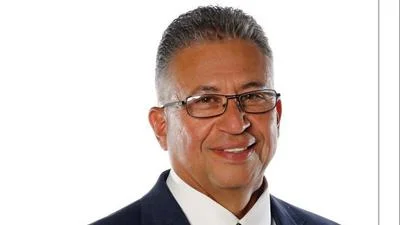Don’t panic.
Inflation is upon us, says financial expert Roger Nagel. It’s been caused in part by excessive government spending, he said, but over-reactions by the government or private citizens would only make it worse.
Nagel is the managing director of Nagel CPAs, LLC – Accountants and Advisors, which serves “the middle Rio Grande Valley and beyond.” He said inflation is definitely affecting his clients, the state and the nation.
“I do, in general at least,” Nagel told the New Mexico Sun. “Construction costs have gone through the roof.”
In an op/ed in the Rio Rancho Observer, Nagel, who has four decades of experience in the field, wrote about an important date for people to note as part of the American Rescue Plan Act, signed into law this spring.
“Starting July 15, the U.S. government will make direct monthly payments to taxpayers. The form will be an advanced payment of the child tax credit for households with children under age 18,” he wrote. “Since March of last year, the U.S. government has experimented with a variety of direct payments to taxpayers. It began with the CARES Act and the Paycheck Protection Program loans – disguised as ‘forgivable loans.’”
He said the governments may have over-reacted when the Covid-19 pandemic struck. At the time, the economy was booming and had been for nearly a decade.
“I think there’s many factors,” Nagel said. “Certainly, flooding the market with more money like we have never seen when really only a small fraction of the economy was directly impacted by COVID has added to the problem.”
The closures and mandatory shutdowns created a pent-up demand, he said. As restrictions were lifted, that demand existed – and there was more money in the system.
It was a perfect setup for an inflationary period, he said. And yet, government officials at the federal and state levels are still intent on pouring more money into the economy, adding fuel to a growing fire.
“We have administrations that have concluded the best way to solve problems is to write a check,” Nagel said. “So we wrote a check at the beginning and now we’re writing a check at the end.”
Another issue is a terrible shortage of “eligible and willing workers,” he said. It’s a problem in all industries.
The Bureau of Labor Statistics reports that the Albuquerque region continues to experience unemployment rates (7.0%) above the national average (5.5%).
In addition, this year New Mexicans are seeing a price index increase of over 5% on all items since last year. The 12-month percent change in energy prices on New Mexicans was a whopping 30.1% exceeding the national average of 28.5%.
Another factor is that people have short memories. Escalating inflation hasn’t happened for several years, he said.
“Most of us have forgotten what it’s like,” Nagel told New Mexico Sun. “Our responses may not always be the best.”
In his op/ed, he looked back four decades at a time when inflation ran rampant.
“Most of us over age 60 remember the inflationary years of ’78-81. Stagflation. The Misery Index. If you are curious, then Google those terms,” he wrote. “It is hard to imagine a return to 18% mortgage rates. Ask any construction contractor and they will confirm recent material price increases of 200% to 400% — when you can get materials. Shortages and delivery delays are now common. So, what shall we do?”
Nagel told the Sun he doubts things will get that bad this time around.
“I don’t think so,” he said. “The economists are predicting an increase but nothing anywhere close to even 7 or 8%. I would say it’s unlikely we will have inflation get out of hand. The consequences of controlling that could be just as painful as the inflation itself.”
Typically, there is a constriction of the money supply and an increase in interest rates, he said.
In his op-ed, Nagel advised caution.
“Unfortunately, as is often the case, there are no easy answers. No silver bullets,” he wrote. “Before you fall for the temptation to buy cryptocurrency as an inflation hedge, stop and think. Remember if you buy nothing, rising prices mean very little in the short run. Last time, most of us simply waited it out, as new federal economic policy took effect. And we endured, happily, as our certificates of deposits paid us 14%.”
Nagel, 63, said that when he sees people seeking some form of security by making rushed decisions and purchases of real estate – with people “grabbing as much as they can as fast as they can” – not even gold or cryptocurrency are guaranteed to be safe.
“I don’t know if there ever was a need for that kind of reaction,” he said. “There’s going to be long-term consequences to that. If you buy now, and you have to sell two years from now, you may not be able to get your money out of it. We’ve seen that cycle just as recent as 2008-09.”
Nagel said prices will stabilize. It’s happened before and will again.
“I think everything cycles,” he said.









